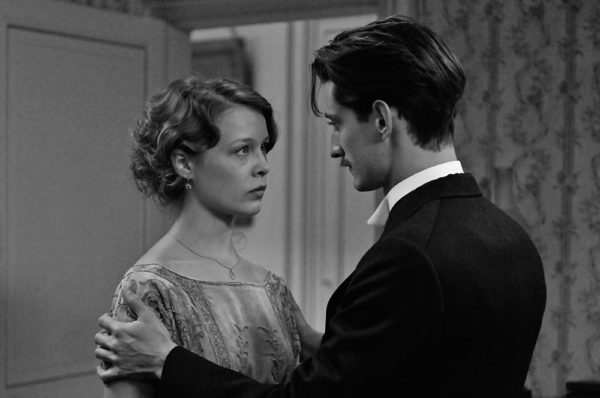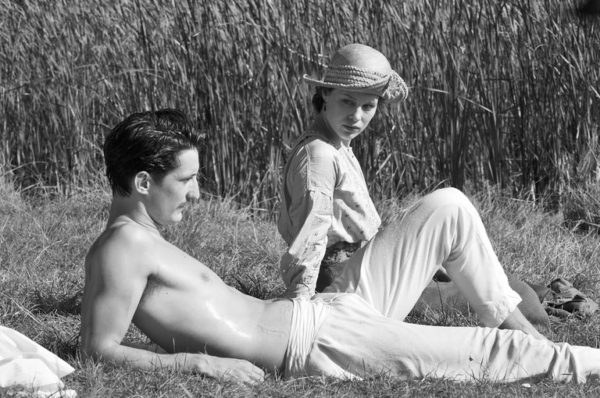Francois Ozon’s romantic drama, Frantz, moves between national borders seamlessly. Languidly unfolding in Germany and France in 1919, a year after the end of World War I, it’s based on Ernst Lubitsch’s 1932 movie, Broken Lullaby. Scheduled to open in Canadian theatres on April 7, Ozon’s spare and affecting film is at once sweet and bitter.
Anna (Paula Beer), a young woman, visits a cemetery in Quedlinburg, a town of charming half-timbered buildings in central Germany. To her surprise, she finds a bouquet of roses on the grave of her fiance, Frantz, who was killed during the war. He was among the millions of young European men consumed by that useless conflict.
The caretaker tells Anna the flowers were left there by a foreigner. He turns out to be Adrien (Pierre Niney), a sensitive-looking 24-year-old French war veteran who’s in Germany to pay his last respects to Frantz, his old friend. The following day, Anna finds Adrien at the cemetery again.

Adrien’s attempt to connect with Frantz’s father, Hans (Ernst Stotzner), a physician, fizzles. He regards Adrien as a “French murderer,” the slaughterer of German soldiers. In defeated postwar Germany, the mood is hard and xenophobic.
Anna, who lives with Frantz’s parents, convinces them to invite Adrien for dinner. Frantz’s mother, Magda (Marie Gruber), is hospitable, but her husband is distant. Adrien, though shy and reserved, describes his pre-war friendship with Frantz in animated terms and comforts the two old people.
Anna and Adrien meet at the cemetery once again. Anna, who’s fairly fluent in French, recites lines from a French poem. Adrien is impressed by her eloquence. They take a walk in the woods and stop at a lake, where Adrien takes a dip. As they lie on the grass, she notices scars on his body. “My only wound is Frantz,” he says poignantly.

By now, they’ve grown closer. Anna, in particular, seems to regard Adrien as the next best thing to Frantz. Nonetheless, they’re still far from bonding romantically. Niney and Beer, both accomplished actors, deliver restrained yet emotional performances.
As the days pass, Adrien revisits Frantz’s parents, reveals he’s a professional violinist in a Paris orchestra and asks Anna to accompany him to a dance, an invitation she gladly accepts. It’s the only time in the film she smiles and exudes radiance. Adrien has touched her deeply. But after he bares his soul about a painful incident during the war, she becomes cool and remote and their relationship sours.
They part ways at the train station, perhaps never to see each other again. They correspond, but the correspondence ends. Magda, having grown fond of Adrien, convinces Anna to search for Adrien in Paris. Anna is only too glad to oblige. Although she never expresses her feelings in words, it’s clear she’s attracted to Adrien.
In the last quarter of Frantz — which is shot in black and white and color — Anna looks high and low for Adrien. She finally tracks him down, only to discover his personal situation has changed irrevocably.
This is a film whose quiet power and repressed passions draw you in inexorably.